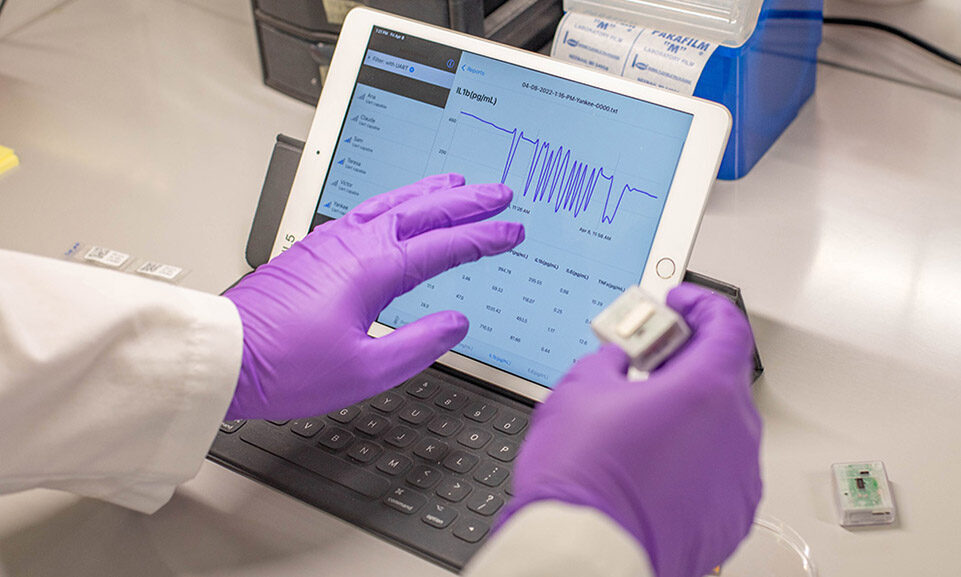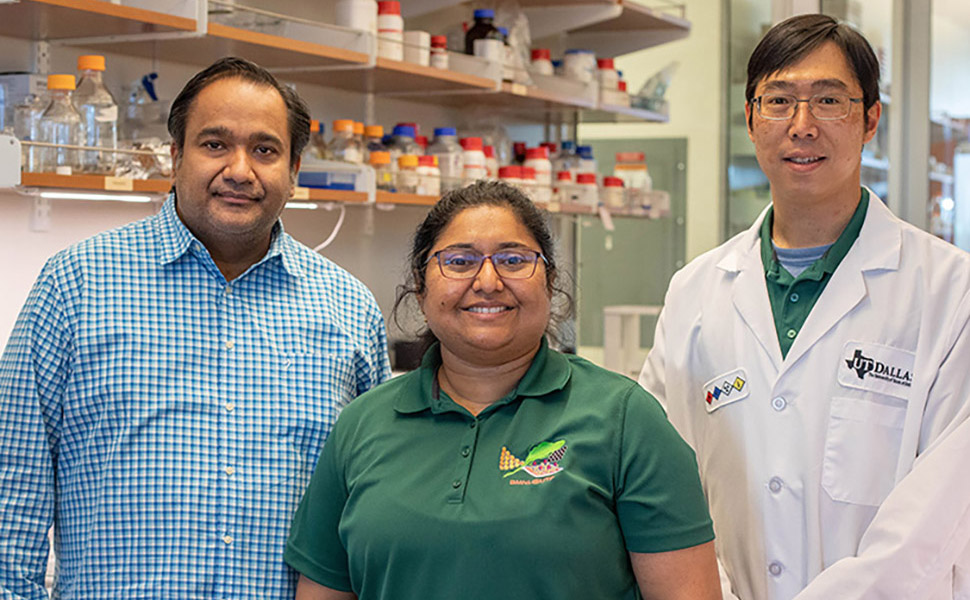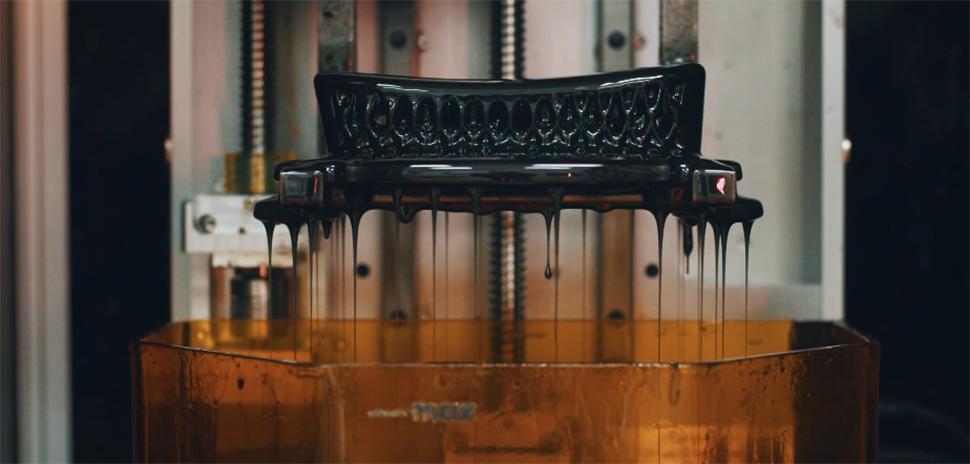What if you could get early warning signs of infection that could give you a heads-up about a serious illness, like COVID-19 or the flu? Like America’s NORAD missile defense shield, seeing what’s coming might have the potential of helping you fight the attack earlier, receiving faster treatment that could potentially lessen the impact of the disease.
A team of UT Dallas researchers, in collaboration with Allen-based EnLiSense, believes they’ve made a “significant step” toward making that kind of early detection possible. The team has developed a wearable sensor that can detect two key biomarkers of infection in passive human sweat.
The Erik Jonsson School of Engineering and Computer Science researchers published their study online March 3 in the journal Advanced Materials Technologies, demonstrating that the sweat sensor can identify the biomarkers interferon-gamma-inducible protein (IP-10) and tumor necrosis factor-related apoptosis-inducing ligand (TRAIL).
When someone has elevated levels of IP-10 and TRAIL, they’re experiencing what’s known as a “cytokine storm”—a surge of pro-inflammatory immune proteins that are generated in the most serious infections.
‘Pioneering’ research

UTD bioengineers and EnLiSense have designed a wearable sensor that can detect two key biomarkers of infection in human sweat. [Photo: UTD]
“Our work is pioneering since, until this date, it was unclear whether these molecules were present in sweat,” said Dr. Shalini Prasad, UTD’s head of bioengineering and Cecil H. and Ida Green Professor in Systems Biology Science, in a statement. “We established that our low-volume passive sweat technology is indeed able to measure these biomarkers.”
Prasad is also a co-founder of EnLiSense, along with co-founder Dr. Sriram Muthukumar.
Why detecting IP-10 and TRAIL important? The team says it’s because—in addition to C-reactive protein (CRP)—they allow diagnosticians to distinguish between viral and bacterial infections.
Prasad’s team already demonstrated at the April 2021 meeting of the American Chemical Society that their sweat sensor could detect CRP to indicate an impending cytokine storm. In order to confirm the type of pathogen causing an infection, a molecular test like a polymerase chain reaction (PCR) test, would still be needed, Prasad said.
‘The latest frontier in sweat diagnostics’
“We have built a technology to unlock and explore the latest frontier in sweat diagnostics,” Prasad said in the statement. “This sweat-based, wearable technology from EnLiSense is truly transformational in that it can measure and report human host response messenger molecules associated with inflammation and infection in a real-time and continuous manner.”
By “sweat diagnostics,” you aren’t meant to imagine someone who’s run a marathon and is dripping with sweat. Instead, the sensors detect “passive sweat,” which occurs naturally on human skin without the need for physical activity or sweat gland expression. Sweat is collected on a removable strip which is must be changed daily, allowing for continuous monitoring.
Builds on Dr. Prasad’s earlier sensor research
Dallas Innovates has been following Dr. Prasad’s sensor tech research for years. In 2016, we wrote about Prasad and her team developing a wearable, textile-based sensor that measured glucose through human sweat. Then in 2020, she and her team developed a wristwatch-like device that looked for biomarkers that could potentially signal the flare-up of inflammatory bowel disease. That device was created in a proof-of-concept study funded by the Crohn’s & Colitis Foundation.
Funded by DHS research initiative
The research project has been funded by a contract awarded to EnLiSense as part of the DRIVe initiative (Division of Research, Innovation, and Ventures). DRIVe was established by the Biomedical Advanced Research and Development Authority, part of the Assistant Secretary for Preparedness and Response within the Department of Health and Human Services.
For this study, the researchers collected sweat from 18 healthy people who wore the sensor. They also drew blood from them and compared the results.
Up next: Exploring the sensor for respiratory infections
The research team next plans to follow up this study by evaluating the sensor in clinical studies with patients experiencing respiratory infections.
Study authors
The first author of the sensor/infection study is Badrinath Jagannath PhD ’21, who received a first-tier David Daniel Thesis Award from UTD’s Office of Graduate Education for his research on the sensor tech. He recently became a postdoctoral research fellow at the Wyss Institute at Harvard University.
Other authors include UT Dallas bioengineering research scientist Dr. Kai-Chun Lin; Dr. Madhavi Pali, a former UTD bioengineering research scientist; Devangsingh Sankhala PhD ’21, a system engineer at Delart; Dr. Pejman Naraghi, senior consultant and subject matter expert at Tunnell Government Services; and Dr. Sriram Muthukumar, co-founder of EnLiSense, an Allen-based company that develops lifestyle-based sensors and devices. Prasad, who is the corresponding author of the study, also is a co-founder of EnLiSense.
![]()
Get on the list.
Dallas Innovates, every day.
Sign up to keep your eye on what’s new and next in Dallas-Fort Worth, every day.














![TI's new radar sensor gives automotive engineers more tools that can fuel vehicle innovation. [Source image: Texas Instruments]](https://s24806.pcdn.co/wp-content/uploads/2022/01/TI-radar-sensor_courtesy-970x464.jpg)



















































